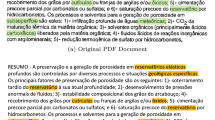Abstract.
Optical character reader (OCR) misrecognition is a serious problem when OCR-recognized text is used for retrieval purposes in digital libraries. We have proposed fuzzy retrieval methods that, instead of correcting the errors manually, assume that errors remain in the recognized text. Costs are thereby reduced. The proposed methods generate multiple search terms for each input query term by referring to confusion matrices, which store all characters likely to be misrecognized and the respective probability of each misrecognition. The proposed methods can improve recall rates without decreasing precision rates. However, a few million search terms are occasionally generated in English-text fuzzy retrieval, giving an intolerable effect on retrieval speed. Therefore, this paper presents two remedies to reduce the number of generated search terms while maintaining retrieval effectiveness. One remedy is to restrict the number of errors included in each expanded search term, while the other is to introduce another validity value different to our conventional one. Experimental results indicate that the former remedy reduced the number of terms to about 50 and the latter to not more than 20.
Similar content being viewed by others
Author information
Authors and Affiliations
Additional information
Received: 18 December 1998 / Revised: 31 May 1999
Rights and permissions
About this article
Cite this article
Ohta, M., Takasu, A. & Adachi, J. Reduction of expanded search terms for fuzzy English-text retrieval . Int J Digit Libr 3, 140–151 (2000). https://doi.org/10.1007/s007999900014
Issue Date:
DOI: https://doi.org/10.1007/s007999900014




